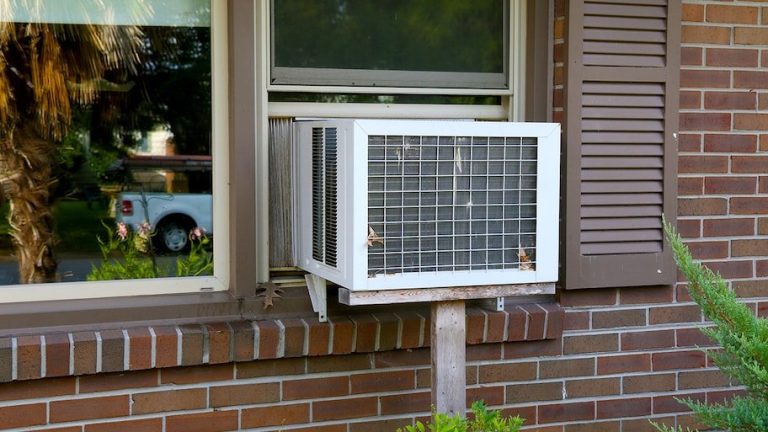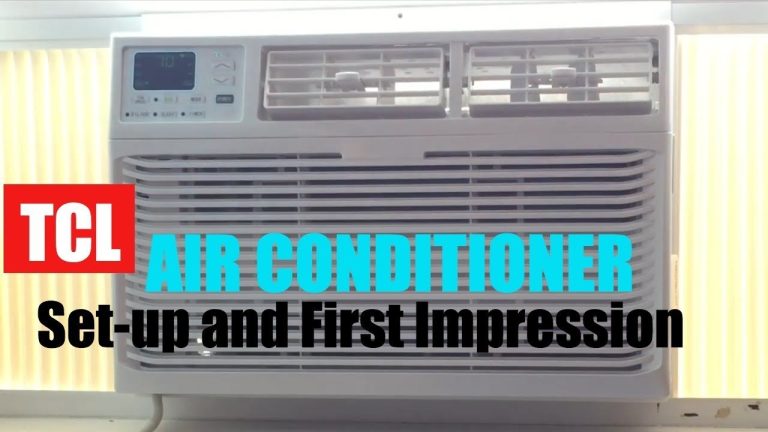Air Conditioner Leak Water: Expert Guide To Detect, Fix, And Prevent Leaks
Air conditioners can leak water due to several reasons. Common causes include a clogged condensate drain line, a dirty air filter, or a refrigerant leak. To fix the issue, you can try cleaning the drain line, replacing the air filter, or contacting a professional for refrigerant leak detection and repair. Regular maintenance can help prevent water leaks in the future.
Are you tired of finding water leaks around your air conditioner? Is the constant dripping driving you crazy and causing damage to your property? If so, you’re not alone. Homeowners, renters, and individuals responsible for maintaining cooling systems in residential and commercial buildings all face the same frustrations and concerns.
In this blog article, we will explore the causes of air conditioner water leaks, provide troubleshooting techniques, and offer prevention strategies to help you overcome these challenges. Whether you have a basic understanding of HVAC systems or consider yourself an intermediate expert, this article will equip you with the knowledge and tools you need to effectively deal with air conditioner leaks.
Water damage, increased utility bills, and potential health hazards caused by mold and mildew are just a few of the problems that can arise from air conditioner leaks. By understanding the underlying causes and implementing the right solutions, you can not only save yourself from costly repairs but also ensure the comfort and well-being of your family or tenants. Throughout this article, we will delve into the most common reasons for air conditioner leaks, such as clogged drain lines, frozen evaporator coils, and improper installation.
We will also discuss practical troubleshooting techniques to identify and fix these issues. Additionally, we will provide preventive measures that can help you avoid future leaks and maintain the optimal performance of your cooling system. So, let’s dive in and discover how you can tackle air conditioner water leaks effectively.
Understanding Air Conditioner Water Leaks
When you notice water leaking from your air conditioner, it can be a cause for concern. Air conditioner water leaks are a common issue that many homeowners face. Understanding the causes of these leaks is crucial in troubleshooting and preventing further damage. Let’s take a closer look at why air conditioners leak water:
1. Clogged Drain Lines
Clogged drain lines are one of the primary culprits behind air conditioner water leaks. Over time, dust, dirt, and debris can accumulate in the drain lines, obstructing the flow of water. As a result, the water backs up and can overflow, leading to leaks.
To tackle this issue, you can start by inspecting the drain lines for any visible clogs or blockages. If you notice any, carefully remove the blockage using a wet/dry vacuum or a pipe cleaner. Regular maintenance, such as flushing the drain lines with a mixture of bleach and water, can also prevent future clogs and leaks.
2. Frozen Evaporator Coils
Another common cause of air conditioner water leaks is frozen evaporator coils. When the evaporator coils inside the air conditioner freeze, they can no longer absorb the moisture from the air effectively. As a result, the excess moisture drips into the drip pan and overflows, causing leaks.
To address this issue, you should start by turning off the air conditioner and allowing the frozen evaporator coils to thaw. Once thawed, check the airflow and ensure that the air filters are clean. Restricted airflow can lead to freezing coils. Regularly cleaning or replacing the air filters can help prevent this problem.
3. Improper Installation
Improper installation of an air conditioner can also result in water leaks. If the unit is not level or if the drainage system is not correctly installed, water can accumulate and leak from the unit. A poorly insulated or damaged drain pan can contribute to this issue as well.
If you suspect improper installation, check this guidline of how to install portable air conditioner in sliding window or it’s best to consult a professional HVAC technician. They can assess the installation and make the necessary adjustments or repairs to prevent further water leaks.
Troubleshooting Air Conditioner Leaks
Now that we have covered the common causes of air conditioner water leaks, let’s discuss troubleshooting techniques to identify and address these issues:
1. Check the Condensate Drain Pan
The condensate drain pan collects the water that drips from the air conditioner. Over time, this pan can develop cracks or damage, leading to leaks. Inspect the drain pan for any signs of damage and replace it if necessary.
2. Clean the Condensate Drain Line
If you suspect a clogged condensate drain line, you can use a wet/dry vacuum or a pipe cleaner to remove the blockage. Alternatively, a mixture of bleach and water can be poured into the drain line to clear any buildup.
3. Inspect the Air Filters
Dirty or clogged air filters can obstruct airflow and contribute to frozen evaporator coils. Regularly inspect and clean or replace the air filters to ensure optimal performance and prevent water leaks.
4. Check the Refrigerant Levels
Inadequate refrigerant levels can cause the evaporator coils to freeze, resulting in water leaks. Consult a professional HVAC technician to check and recharge the refrigerant levels if necessary.
5. Inspect the Ductwork
Damaged or disconnected ductwork can lead to reduced airflow and increased condensation. Inspect the ductwork for any visible damage or disconnected sections. Repair or replace the ductwork as needed to prevent leaks.
Preventing Air Conditioner Water Leaks
While troubleshooting and fixing air conditioner leaks are essential, preventing them in the first place can save you time, money, and frustration. Here are some preventive measures you can take:
1. Regular Maintenance
Schedule regular maintenance for your air conditioning system. This includes cleaning the air filters, inspecting the drain lines, and checking the refrigerant levels. Regular maintenance can help identify and address potential issues before they turn into major leaks.
2. Clear Surrounding Debris
Keep the area around your outdoor unit clear of debris, such as leaves, branches, and dirt. Blocked airflow can contribute to frozen coils and water leaks. Regularly clean the area to ensure proper airflow.
3. Maintain Proper Insulation
Ensure that your air conditioning system is properly insulated. Poor insulation can cause condensation to form on the unit, leading to leaks. Proper insulation can help regulate temperature and prevent excessive condensation.
4. Install a Condensate Pump
If your air conditioner is located in the basement or a low-lying area, installing a condensate pump can help remove the water effectively. The pump can pump the water to a higher location or a drain, preventing overflow and leaks.
Air conditioner water leaks can be a nuisance, but with the right knowledge and preventive measures, you can overcome these challenges. By understanding the causes of the leaks and implementing troubleshooting techniques, you can effectively address the issues and prevent further damage.
Remember to schedule regular maintenance for your air conditioning system and keep the surrounding area clean and clear. By taking these proactive steps, you can enjoy a leak-free and efficient cooling system for years to come.
Leaking or Waterfall? Air Conditioner Is Leaking Water | Viral Video | #shorts
Frequently Asked Questions (FAQ)
Why is my air conditioner leaking water?
How can I prevent my air conditioner from leaking water?
Can a dirty air filter cause water leakage?
Do I need to call a professional if my air conditioner is leaking water?
Should I turn off my air conditioner if it is leaking water?
Final Words: Troubleshooting and Preventing Air Conditioner Water Leaks
In conclusion, air conditioner water leaks are a common problem that can cause concern for homeowners. The main causes of these leaks include clogged drain lines, frozen evaporator coils, and improper installation.
By understanding these causes, homeowners can take appropriate measures to troubleshoot and address the issues. To troubleshoot air conditioner leaks, homeowners can check the condensate drain pan for damage and clean the drain line to remove any clogs.
Inspecting and cleaning or replacing the air filters is also important to ensure optimal performance. Checking the refrigerant levels and inspecting the ductwork for damage or disconnections are additional troubleshooting techniques. Preventing air conditioner water leaks is key to saving time, money, and frustration.
Regular maintenance, including cleaning the air filters and inspecting the drain lines, can help identify and address potential issues before they become major leaks. Keeping the area around the outdoor unit clear of debris and maintaining proper insulation can also help prevent leaks. Installing a condensate pump is recommended for air conditioners located in basements or low-lying areas.






